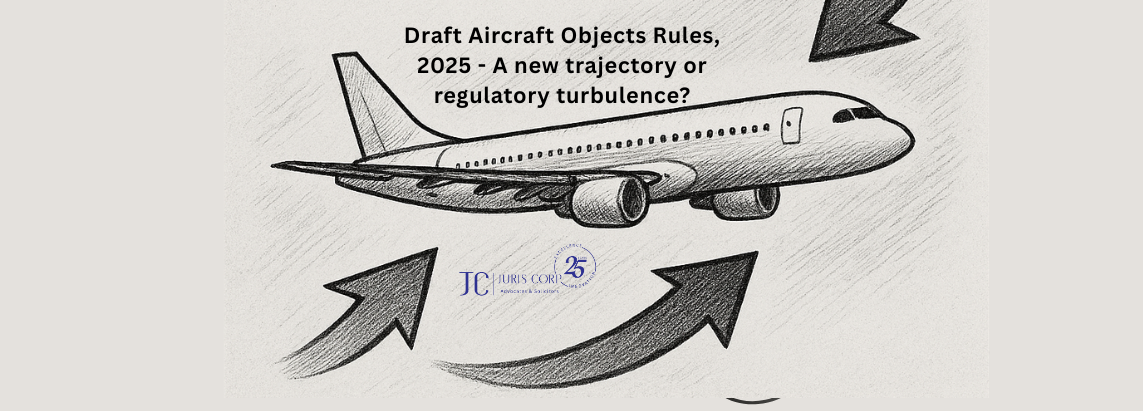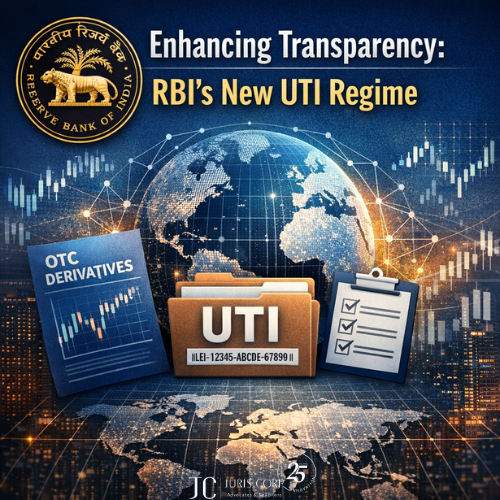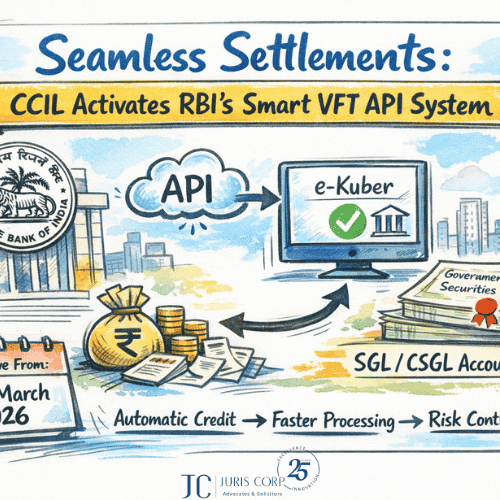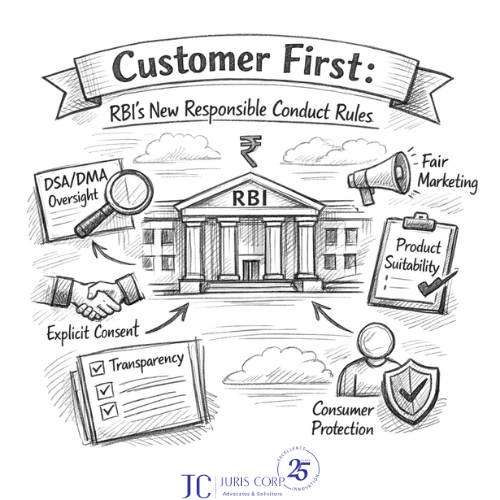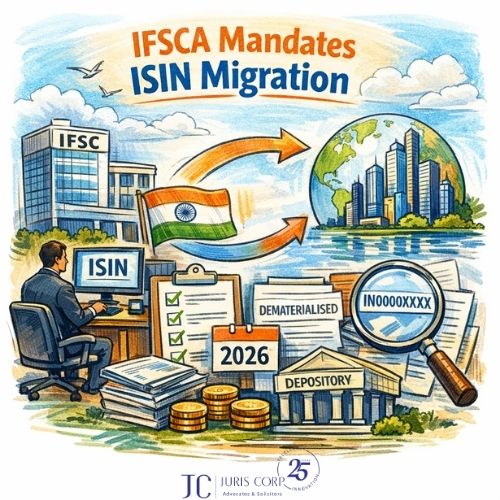Introduction
India has recently undertaken a significant overhaul of its aviation legal framework, with the objective of aligning domestic laws with its international obligations under the Cape Town Convention on International Interests in Mobile Equipment (“Convention”) and the Protocol on Matters Specific to Aircraft Equipment (“Protocol”). This overhaul includes the enactment of the Bharatiya Vayuyana Adhiniyam, 2024 (“BVA”), which replaced the Aircraft Act, 1934, and enactment of the Protection of Interests in Aircraft Objects Act, 2025 (“Aircraft Objects Act”). Building on this foundation, the Ministry of Civil Aviation has now released the Draft Protection of Interests in Aircraft Objects Rules, 2025 (“Draft Rules”). The Draft Rules propose detailed procedures for registering interests in aircraft objects, maintenance of records of dues on an aircraft object and de-registration and export of an aircraft.
While the Draft Rules aim to enhance transparency and improve accountability, some rules may be concerning in relation to the interest of lessors and financiers. Through this article, we touch upon some of the pain points for lessors and financiers.
Proposal in the Draft Rules
Category of “Dues” and “Stakeholders” in respect of an aircraft object defined
- Dues: Dues include unpaid wages of airline employees, airport operator charges including landing charges, housing charges and parking charges, route navigation and facilitation charges, terminal navigation landing charges, fuel charges, goods and service tax payable in respect of the leasing or financing of that aircraft object, and extends to any other dues of a service provider as specified by the Directorate General of Civil Aviation (“DGCA”).
However, dues of financiers or lessors of an aircraft object have not been included in this list, except to the extent of applicable goods and services tax (“GST”).
- Stakeholders: Stakeholders encompass airline employees, airport operators, air navigation service provider, goods and services tax authority, any person obtaining a court order permitting attachment of an aircraft object in partial or full satisfaction of a legal judgment, and any other authority as specified by the DGCA.
This category also does not include financiers or lessors and implies that financiers and lessors would perhaps have to obtain a court order or judgment to be recognised as stakeholders.
Creditors’ obligation, remedy, and de-registration of an aircraft:
- Prior to exercising any remedy under the Convention or Protocol, a creditor has to notify the DGCA of declared default, and upon receipt, has to be acknowledged by the DGCA.
- Before the end of the next working day, the DGCA shall notify the stakeholders (as listed above), publish a notice on its website with the aircraft object details and request submission of their respective outstanding dues on such aircraft object within 3 (three) working days.
Given the non-inclusion of financiers and lessors as ‘stakeholders’, it remains unclear whether they would have to submit details of their outstanding dues pursuant to the notice by the DGCA. This also leads to a disconnect whereby a creditor is required to notify the DGCA before exercising the remedy as above, but details of the outstanding dues have to be submitted by the stakeholders, which does not mention financiers and lessors.
- Further, if a creditor intends to exercise remedy under Article XIII of the Protocol[1], the DGCA will proceed as per the BVA, or any rules made thereunder.
Pertinently, if such creditor (in its capacity as a financier or lessor) is not included in the list of ‘stakeholders’ and may not be required to submit the outstanding dues per se, the need for the above procedure seems unclear in their context.
- The dues (as listed above) arising after notifying the DGCA shall have priority and would need to be cleared by the irrevocable deregistration and export request authorisation (“IDERA”) holder to the stakeholders namely: airline employees, airport operators, air navigation service provider, goods and services tax authority, and any other authority as specified by the Registry Authority, before the aircraft is exported from India as per the provisions of the BVA or any rules made thereunder.
It is impractical to expect the IDERA holder to pay before taking possession of their aircrafts for items such as unpaid wages of airline employees, airport operators’ charges, including landing charges, and even fuel charges. This rule could effectively wipe out the entire equity in an aircraft if all dues are required to be cleared by the IDERA holder before taking repossession.
- The right or interest of the ‘stakeholders’ (as listed above), shall be registered as Registrable Non-Consensual Rights or Interests on such aircraft object by the stakeholder with the international registry and shall be an international interest in terms of Article 40 of the Convention. The position of the financiers and lessors as regards priority is likely to be diluted if the stakeholders’ rights or interests (as listed above) are also registered as non-consensual international interests under Article 40 of the Convention.
Mandatory registration of interest on an aircraft object with the DGCA[2]
- Who has to register: Any debtor operating an aircraft object after commencement of the Draft Rules becoming effective, and even where the aircraft object is already registered in India or is being operated in India as on the date of commencement of the Draft Rules.
- What has to be registered: The interest in an aircraft object which is subjected to an international interest.
- Timeline: Where the aircraft object in India is registered after the Draft Rules becoming effective – within 30 (thirty) days of registration of such aircraft object in India; and where the aircraft object is already registered or being operated as on the date of commencement of the Draft Rules – within 90 (ninety) days of the Draft Rules becoming effective.
- Once this registration is completed, the aircraft object is identifiable through an Indian nationality registration mark assigned to the aircraft in its Certificate of Registration.
Record of dues to be maintained with the DGCA
- Who has to submit and maintain: Debtor
- Types of dues: Dues arising from, related to or owed in regard to the ownership or use by the owner or operator of the aircraft object and set out in Appendix A to the Draft Rules
- Timeline for submission and maintenance: By 5th day of the first month in a quarter and has to be continued till the interest on the aircraft object is registered in India.
- Format: In Form II and electronically on the portal hosted by the DGCA.
- This information is also required to be submitted in the event there is a default in payment to a creditor or upon specific directions of the DGCA.
- The details of registration of interest in an aircraft object and record of dues submitted by the debtor would be accessible to the creditor and stakeholders, for that specific aircraft.
Conclusion: One step forward or two steps back?
The enactment of the Aircraft Objects Act was seen as a welcome move and a step forward in aligning India’s legal framework with the Convention and the Protocol, whereas the Draft Rules now seem to have taken two steps back and weakened this stance.
Although the Draft Rules introduce a structured process for default notifications and stakeholder involvement, the actual position of financiers and lessors is significantly weakened. A significant impact of the Draft Rules is that the IDERA holder would be required to clear all dues before taking repossession of their aircraft. If implemented, this proposal would only complicate the task of reclaiming the aircraft from distressed carriers by requiring lessors and financiers to first clear airline taxes and salaries, which is unfounded. The government may at best consider putting a look-back period in the context of unpaid wages of airline employees, where for a period of say 30-60 days, unpaid wages are required to be paid by the lessors / financiers prior to taking repossession.
Further, non-inclusion of financiers and lessors in the list of ‘stakeholders’ and ‘dues’ is another crucial proposal which weakens the position of financiers and lessors and, in a way, implies that securing a court order would place them better under the Draft Rules. Furthermore, the procedure of collecting dues from the stakeholders after being notified of a declared default when the debtor is required to periodically submit the record of dues (which would be accessible to the creditors and stakeholders of the aircraft) seems to duplicate the process of collecting the same information. Besides, the procedure does not clarify what would happen to the dues of a stakeholder submitted after the expiry of the timeline.
While the Draft Rules appear to be straightforward and foster transparency on paper, in practice, it risks becoming entangled in administrative and legal delays. This would contradict the objective behind enactment of the Aircraft Objects Act and the Convention and the Protocol, which was to facilitate easier deregistration and repossession of aircraft objects without prolonged legal hurdles.
Given these concerns, the Draft Rules merit a reconsideration and a closer analysis to align the procedure across the legal framework – under the Aircraft Objects Act read with the Convention and the Protocol, the Aircraft Rules, 1937, the BVA and the rules made thereunder. The intention should be to put in place a system that adopts globally acceptable best practices while reposing faith in the Indian aviation market
Authors:

Ankit Sinha Email: ankit.sinha@juriscorp.in |

Aditi Sinha Email: aditi.sinha@juriscorp.in |

Yashassvi Periwal Associate, Juris Corp |
Disclaimer:
This article is intended for informational purposes only and does not constitute a legal opinion or advice. Readers are requested to seek formal legal advice prior to acting upon any of the information provided herein. This article is not intended to address the circumstances of any particular individual or corporate body. There can be no assurance that the judicial / quasi-judicial authorities may not take a position contrary to the views mentioned herein.
[1] Pursuant to Article XIII of the Protocol, a creditor is allowed to take possession of an aircraft by deregistering and exporting it in case of debtor’s default.
[2] Rule 5 of the Draft Rules

